Introduction to Emotional Intelligence (EQ)
What is Emotional Intelligence?
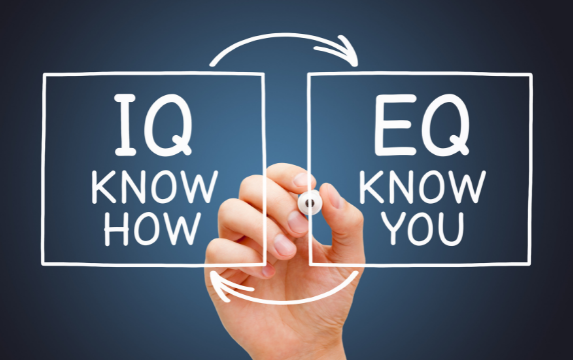
Emotional Intelligence, often referred to as EQ, is the ability to recognize, understand, manage, and influence our own emotions and the emotions of others. Unlike IQ, which measures cognitive abilities, EQ focuses on emotional and social competencies. It’s about being smart with feelings, both your own and those of others.
In this series, we will explore four key components of Emotional Intelligence that are essential for personal growth, effective leadership, and successful interpersonal relationships: Self-Awareness, Self-Management, Social Awareness, and Relationship Management.
The Importance and Benefits of Emotional Intelligence
Emotional Intelligence plays a critical role in both personal and professional success. It influences how we manage our own emotions, how we interact with others, and how we navigate the complexities of social situations. Here’s why EQ is so important and how it can benefit you:
Personal Impact:
- Greater Self-Awareness: Understanding your emotions allows you to recognize your strengths and weaknesses, leading to better decision-making and personal growth.
- Improved Relationships: High EQ enables you to connect with others on a deeper level, fostering empathy, trust, and mutual respect.
- Better Stress Management: Emotional Intelligence helps you manage stress more effectively, leading to improved mental and emotional well-being.
Professional Impact:
- Enhanced Leadership Abilities: Leaders with high EQ can inspire and guide their teams, manage conflicts with empathy, and create a positive work environment.
- Improved Communication: High EQ facilitates clear, compassionate communication, helping you navigate social dynamics and build stronger professional relationships.
- Career Advancement: Emotional Intelligence is often a key factor in achieving success in the workplace, as it contributes to effective teamwork, conflict resolution, and leadership.
By developing your Emotional Intelligence, you can unlock these benefits and create a more fulfilling and successful life both personally and professionally.
The Four Components of Emotional Intelligence
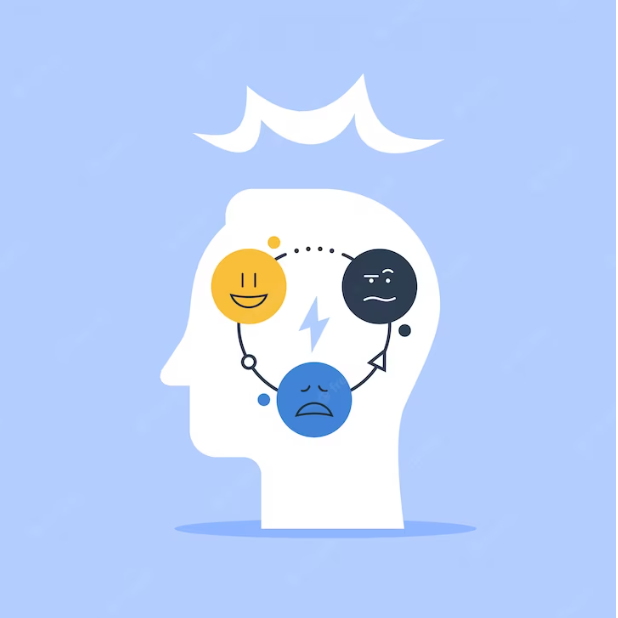
1. Self-Awareness
Self-Awareness is the foundation of Emotional Intelligence. It involves understanding your own emotions, strengths, weaknesses, values, and motives. Being self-aware means recognizing how your feelings affect your thoughts, behavior, and performance. It’s the ability to accurately assess your own emotional state and its impact on others.
2. Self-Management
Self-Management is the ability to control your emotions, particularly in stressful situations. It’s about staying calm, composed, and focused even when faced with challenges. Self-Management also includes being adaptable and resilient, maintaining a positive outlook, and managing impulses effectively.
3. Social Awareness
Social Awareness is the capacity to recognize and understand the emotions of others. It involves empathy—being attuned to the feelings of those around you—and the ability to pick up on social cues. Social Awareness helps you to better navigate social networks and understand the dynamics at play in group settings.
4. Relationship Management
Relationship Management is the ability to manage interactions successfully. It involves clear communication, conflict resolution, and the ability to build and maintain healthy relationships. Effective Relationship Management is about inspiring and influencing others, fostering collaboration, and managing change with empathy and understanding.
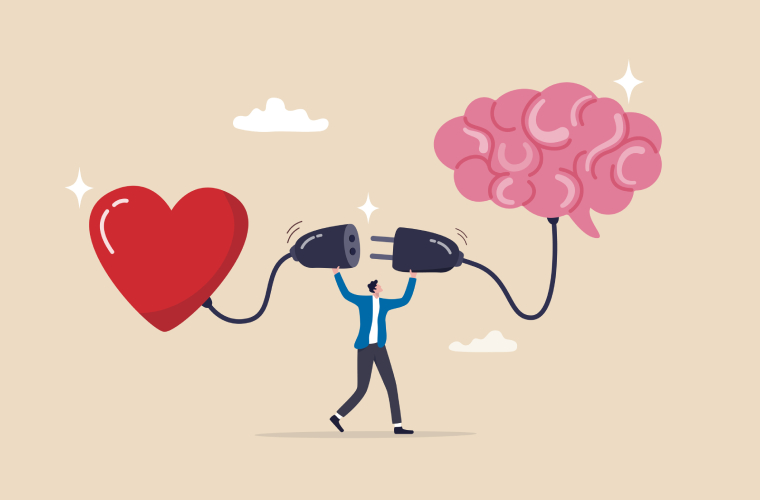
EQ vs. IQ: Understanding the Differences
While both Emotional Intelligence (EQ) and Intelligence Quotient (IQ) are important for success, they measure different types of abilities. Here’s a closer look at how they differ:
IQ (Intelligence Quotient):
- Focus: IQ measures cognitive abilities such as logical reasoning, problem-solving, analytical skills, and memory.
- Nature: IQ is often considered more fixed and is typically assessed through standardized tests.
- Application: High IQ is associated with academic success and the ability to process complex information quickly. It’s often linked to technical skills and tasks that require a high level of cognitive function.
EQ (Emotional Intelligence):
- Focus: EQ measures emotional and social competencies, including how well you understand and manage your own emotions and those of others.
- Nature: Unlike IQ, EQ can be developed and improved over time through practice and self-reflection.
- Application: High EQ is associated with personal and professional success, particularly in roles that require leadership, teamwork, and interpersonal communication. EQ helps in managing relationships, resolving conflicts, and leading others effectively.
Key Differences:
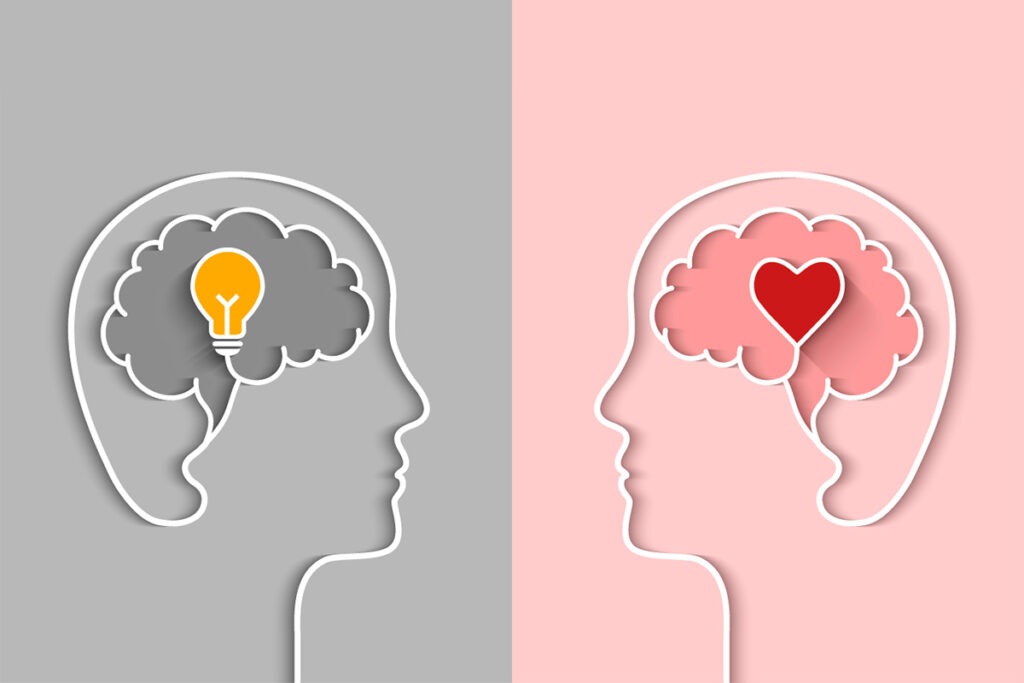
- Cognitive vs. Emotional: IQ focuses on intellectual abilities, while EQ focuses on emotional and social skills.
- Fixed vs. Flexible: IQ is relatively stable, whereas EQ can be enhanced through learning and experience.
- Task-Oriented vs. People-Oriented: IQ is often linked to success in tasks that require cognitive skills, while EQ is crucial for success in people-oriented roles.
Complementary Nature:
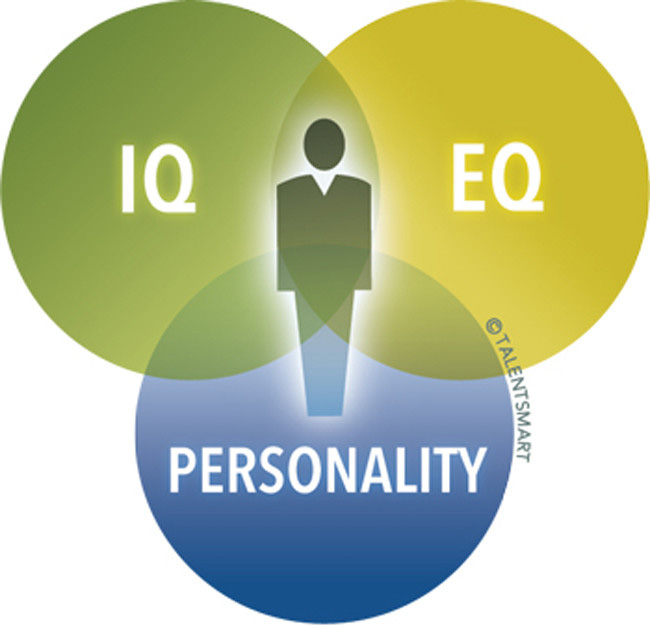
Both IQ and EQ are important in their own right, but research has shown that EQ often plays a more significant role in achieving real-world success. While IQ can get you through the door, EQ determines how well you navigate relationships and challenges once you’re there. For example, in leadership roles, technical skills (IQ) are necessary, but emotional intelligence (EQ) is what makes a leader effective in inspiring and managing a team.
Common Myths About EQ
Myth: EQ is the Same as Being Emotional.
Reality: EQ is not about being overly emotional. It’s about understanding and managing emotions, both your own and others, in a balanced and effective way.
Myth: High EQ Means You’re Always Happy.
Reality: Having a high EQ doesn’t mean you’re always happy. It means you can recognize, understand, and manage your emotions, even when they’re difficult or unpleasant.

Myth: EQ is Only Important in Personal Relationships.
Reality: EQ is crucial in all areas of life, including the workplace. It’s a key factor in leadership, teamwork, and professional success.
Myth: EQ is Fixed and Cannot Be Changed.
Reality: Emotional Intelligence is a skill that can be developed and improved over time with practice and self-reflection.
Myth: EQ is Innate and Cannot Be Developed.
Reality: While some people may naturally have higher EQ, it is a skill that can be learned and developed. Through practice and self-reflection, anyone can improve their Emotional Intelligence.
Myth: EQ is Only About Being Nice.
Reality: EQ is not just about being agreeable; it’s about understanding and managing emotions effectively. It includes setting boundaries, making tough decisions, and navigating conflicts with empathy and clarity.
How to Develop Emotional Intelligence: A Practical Guide

Developing Emotional Intelligence is a journey that involves intentional practice and reflection. Here’s a simple guide to help you get started:
1. Self-Awareness:
- Daily Reflection: Take a few minutes each day to reflect on your emotions. What did you feel today? What triggered those feelings? How did you respond?
- Keep a Journal: Write down your thoughts and emotions regularly. This will help you identify patterns and gain insights into your emotional landscape.
- Seek Feedback: Ask trusted friends or colleagues how they perceive your emotional responses. This external perspective can help you understand how your emotions affect others.
2. Self-Management:
- Practice Mindfulness: Engage in mindfulness practices like deep breathing or meditation to help you stay calm and focused in stressful situations.
- Develop Healthy Coping Strategies: Identify and use positive coping mechanisms, such as physical activity, talking to someone you trust, or creative outlets.
- Set Goals for Emotional Responses: Decide how you want to respond to challenging emotions (e.g., anger, frustration) and practice these responses in real-life situations.
3. Social Awareness:
- Observe Body Language: Pay attention to the non-verbal cues of others, such as facial expressions and body posture, to better understand their emotions.
- Practice Empathy: Try to see situations from others’ perspectives. Ask yourself how they might be feeling and why.
- Listen Actively: Focus on truly hearing what others are saying, rather than planning your response while they are talking.
4. Relationship Management:
- Communicate Clearly: Practice expressing your thoughts and feelings clearly and respectfully, especially in difficult conversations.
- Resolve Conflicts Constructively: Focus on finding solutions rather than assigning blame during disagreements.
- Build Stronger Connections: Invest time in building and maintaining healthy relationships by showing appreciation, being present, and offering support.
These practices, when integrated into your daily life, will help you steadily develop your Emotional Intelligence. Over time, you’ll notice improvements in how you manage your own emotions, interact with others, and handle challenging situations.
Conclusion and Call to Action
Emotional Intelligence is a powerful tool for personal and professional success. By developing your EQ, you can improve your relationships, enhance your leadership skills, and navigate life’s challenges with greater ease and confidence.
We encourage you to take the first step on this journey by exploring our next tool, the Emotion Identification Chart. This simple tool will help you begin to recognize and understand your emotions, laying the groundwork for the deeper work to come.
Additionally, download our EQ Self-Reflection Worksheet to start assessing your own Emotional Intelligence. This practical worksheet will guide you through reflective exercises related to each EQ component, setting the stage for meaningful growth.